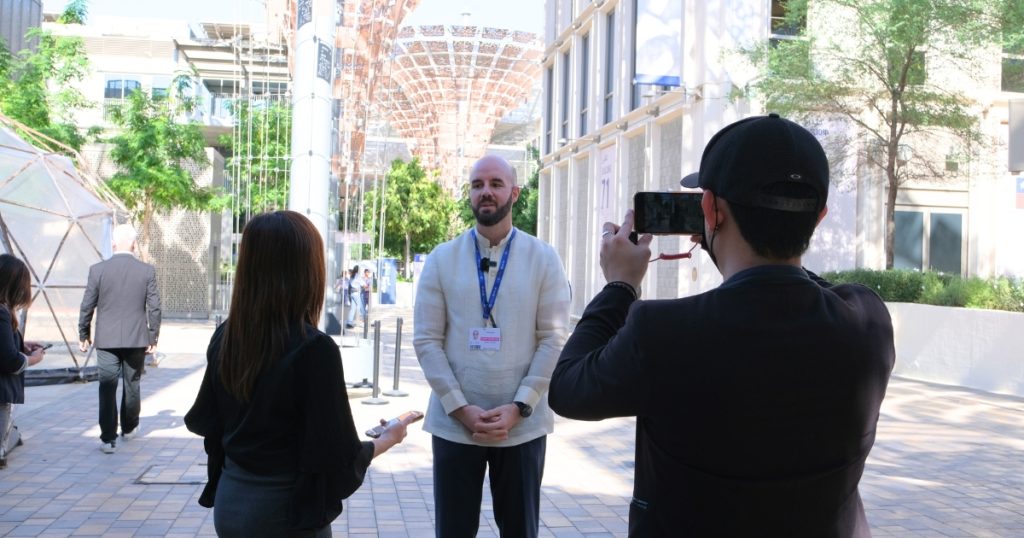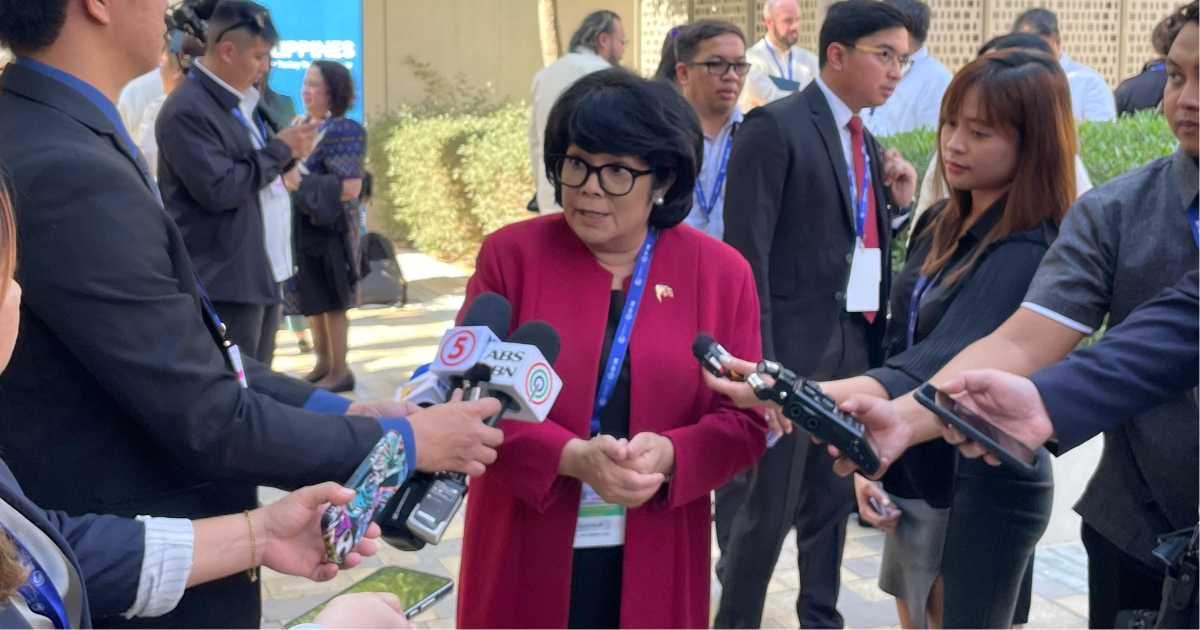The Philippines’ environment secretary is urging the private sector to increase its involvement in solving climate problems through innovative funding.
“Other than sovereign funds, we know that different countries are already experiencing their own situations of financial crises so where are we going to get these resources for developing countries to be able to survive? That’s where the private sector comes in,” Environment and Natural Resources Secretary and Climate Change Commission Chairperson-Designate Sec. Maria Antonia Yulo Loyzaga told The Filipino Times, on the sidelines of the Philippine Pavillion opening at Cop 28.
Loyzaga, who heads the country’s delegation, added that innovative funding instruments in collaboration with the private sector and private-public partnerships will provide these lacking resources.
Loss and Damage Fund
Among the priorities of COP28 is the establishment of a Loss and Damage Fund for countries greatly impacted by climate change. In the Philippine context, the said funding is translated as financing for social development and resilient infrastructure.
“The Loss and Damage Fund is extremely important because there are climate-related adverse impacts that are beyond our ability to finance,” said Loyzaga, citing that sea level rise and the massive destruction brought about by super typhoons that hit the country from Yolanda (Haiyan) to Odette (Rai) have crossed multiple regions “so the cost of really trying to recoup and recover from this is way beyond what we are able to afford as a country.”
The DENR chief added that the Loss and Damage Fund is meant to cover all the financing needed that cannot be addressed by adaptation finance, regular climate finance, or mitigation finance.
Developed countries and other sources such as private sources therefore will be called upon to contribute to its operationalization in a timely and locally-driven manner, she added.
Innovative funding: a response from the private sector
For its part, Ayala Corporation supports the Philippine government’s call for partnership in the areas of climate finance, technology transfer, and capacity-building by doing its share in driving a reduction in global emissions.
A high-level delegation from the Philippine conglomerate is in Dubai to share how its dedicated energy subsidiary ACEN has successfully used an innovative form of financing called the Energy Transition Mechanism (ETM) in transitioning from coal to renewable energy – a world’s first.
For years, ACEN had been working on divesting its South Luzon Thermal Energy Corp. (SLTEC) power plant in Batangas. But traditional banks and investors are moving away from financing coal.
The Ayala-led company had to innovate and courageously implemented ETM, a concept developed by the Asian Development Bank (ADB). Despite being a nascent concept, ACEN was able to divest the plant in November 2022 with a book value of P17.4 billion (P13.7 billion of which are loans from BPI and RCBC to fund the transition).
This was made possible thanks to ETM – marking a historical moment because it is the first market-based deal to provide funding for the retirement of coal plants.
“It is a team effort. It’s a big problem to tackle and so it needs a lot of coordination from the private and the public side,” Jaime Z. Urquijo, Chief Sustainability and Risk Office of Ayala Corporation told The Filipino Times. “As a private sector we play a big role in this. We are taking responsibility for the footprint that we have.”

In 2021, Ayala Corporation — realizing the vision of its Chairman Jaime Augusto Zobel de Ayala and President and CEO Fernando Zobel de Ayala – announced its commitment to achieve Net Zero Greenhouse Gas Emissions (GHG) by 2050.
With this, Ayala became the first conglomerate in the Philippines to commit to a target that is aligned with the Paris Agreement’s goal of limiting global warming to 1.5°C compared to pre-industrial levels.
“We are very proud to have made a net zero commitment in 2021,” said Jaime Z. Urquijo, Chief Sustainability and Risk Officer of Ayala Corporation. “We are working diligently to implement that plan and reach that point.”
He added: “We’ve been very fortunate that we’ve had visionary leaders throughout history including Fernando Zobel de Ayala who was the President and CEO of Ayala Corp at that time who’ve been able to look at the long term. It’s also an incredibly proud moment that we are sharing ACEN’s ETM success with the world. In addition to sharing, we are here to learn as well.”
The ACEN’s ETM initiative aims to retire the 246 MW coal plant by 2040, ushering in a transition to cleaner technology, 15 years before its originally planned end-of-life date in 2055. The expected result of this shift is the avoidance of up to 50 million metric tons of CO2 emissions, fostering an environmentally healthier landscape.
“It’s also an incredibly proud moment that we are sharing ACEN’s ETM success with the world. In addition to sharing, we are here to learn as well,” shared Urquijo.
COP28 is part of the broader 2023 UN Climate Change Conferences — a pivotal gathering addressing climate change risks, reducing greenhouse gas emissions, and addressing global warming.




